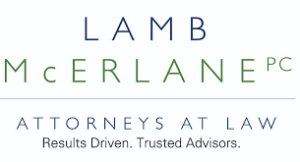The Impact of COVID-19 on the Housing Sector: Eviction & Foreclosure Proceedings

 By Katherine E. LaDow
By Katherine E. LaDow
On March 18, 2020, the Pennsylvania Supreme Court placed a moratorium on evictions and ejectments resulting from a failure to pay rent or mortgage payments. By Emergency Order, the Supreme Court implemented temporary restrictions on Courts’ abilities to effectuate evictions and foreclosure proceedings:
The Court is aware that the economic consequences of the COVID-19 pandemic may cause individuals to suffer a loss of income, which in turn may delay rent payments, mortgage loan payments or the like. … In light of these circumstances, it is further DIRECTED that … no officer, official, or other person employed by the Pennsylvania Judiciary at any level shall effectuate an eviction, ejectment, or other displacement from a residence based upon a failure to make a rent, loan, or other similar payment.
On April 1, 2020, the Pennsylvania Supreme Court issued a Second Supplemental Order which extended the moratorium on evictions through April 30, 2020. The April 1, 2020 Second Supplemental Order further clarified that the temporary prohibition encompasses dispossessions of owners predicated on a mortgage foreclosure or a failure to pay property taxes as well as evictions of tenants as a result of a failure to pay rent. While the March 18, 2020 Emergency Order and the April 1, 2020 Second Supplemental Order temporarily preclude landlords and financial institutions from evicting tenants or ejecting property owners because of a failure to pay rent or a failure to make mortgage payments, landlords and financial institutions may still commence and prosecute eviction and foreclosure proceedings during the March 19, 2020 – April 30, 2020 moratorium period. Courts of Common Pleas, Magisterial District Courts and Municipal Courts (Philadelphia and Pittsburgh) will accept eviction or foreclosure filings but will not hold hearings or execute upon any orders of possession through at least April 30, 2020. On April 17, 2020, the Chester County Court of Common Pleas announced it would be extending the County’s moratorium on evictions and ejectments through May 31, 2020.
Pennsylvania’s moratorium and similar ones implemented nationwide will have a substantial effect on landlords who, in turn, struggle to pay mortgages on their rental properties. On March 18, 2020, President Trump announced that the Department of Housing and Urban Development will suspend all foreclosures and evictions through April of 2020. The Federal Housing Finance Agency also announced that it would suspend foreclosures and evictions for homeowners with mortgages backed by Fannie Mae or Freddie Mac (government-sponsored enterprises that guarantee mortgages furnished to low-income homeowners). However, this federal moratorium will only apply to homeowners with mortgages insured by the Federal Housing Administration or Fannie Mae/Freddie Mac who are occupying their home as a primary residence. Accordingly, property owners of low-to-moderate rental income housing are left unprotected by the federal programs and may feel a significant financial impact stemming from their tenants’ inability and failure to pay rent.
The COVID-19 pandemic is likely to create a domino-effect reaction in the housing sector: renters lose their jobs or suffer reductions in pay and are rendered unable to pay rent; landlords, therefore, lose income that they use to pay their mortgage lender, and, at the same time, are prohibited from evicting non-paying tenants; and mortgage lenders then see their loans go into default, adversely impacting their earnings and their shareholders’ nest eggs. State and local government agencies are beginning to address this potentially dangerous cycle, but the federal government has not yet imposed any long-term protections for borrowers who fall behind on debt payments. Until the federal or local state governments implement a directive or policy to address these issues, private and commercial real estate lenders will be tasked with implementing internal policies to work with borrowers who are in default of their debt obligations.
For further information or assistance, contact Lamb McErlane PC, 610-430-8000. www.lambmcerlane.com.
_______________
 Katherine (Katie) LaDow is an associate in the litigation department at Lamb McErlane PC. She concentrates her practice in the areas of state and federal civil litigation, municipal litigation, government liability & civil rights defense, personal injury, workers compensation, and landlord/tenant work. She represents individuals, small and large businesses and municipalities in a wide array of civil, employment, and tort-based disputes.
Katherine (Katie) LaDow is an associate in the litigation department at Lamb McErlane PC. She concentrates her practice in the areas of state and federal civil litigation, municipal litigation, government liability & civil rights defense, personal injury, workers compensation, and landlord/tenant work. She represents individuals, small and large businesses and municipalities in a wide array of civil, employment, and tort-based disputes.
.
[lp-contribute]
Connect With Your Community
Subscribe to stay informed!
"*" indicates required fields








































![95000-1023_ACJ_BannerAd[1]](https://vista.today/wp-content/uploads/2023/03/95000-1023_ACJ_BannerAd1.jpg)







